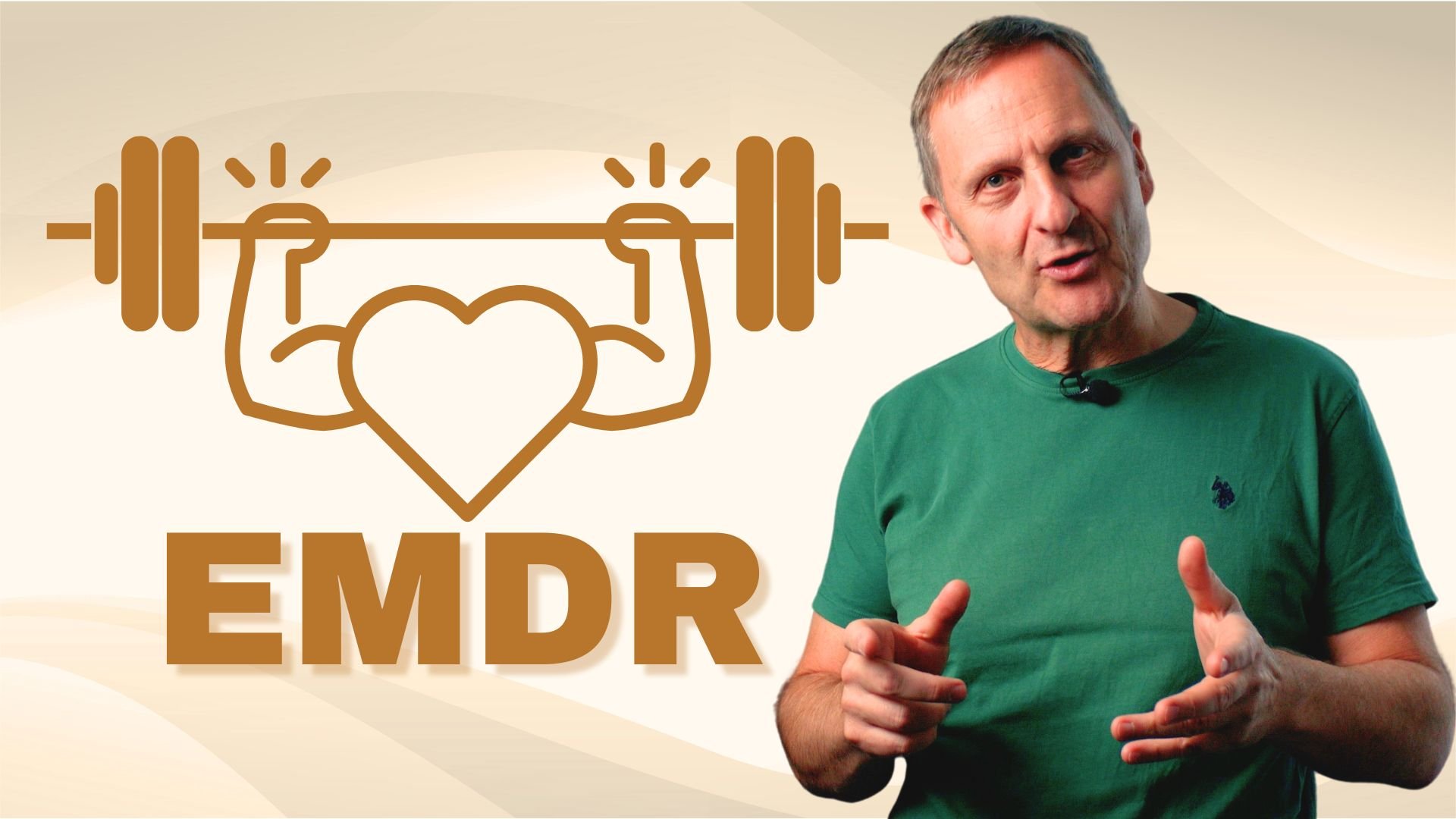A Conversation between EMDR Therapist Thomas Buhl and Mental Coach Juraj Gubi about Mindset, Body Awareness, and Self-Sabotage
We live in a time when you can seemingly buy anything online: the perfect six-pack, passive income, a successful YouTube career. Tutorials promise you the path to happiness – step by step. And yet, at the end of the day, many people stand frustrated in front of the mirror. Why?
In the latest podcast, EMDR therapist Thomas Buhl and mental coach Juraj Gubi talked about exactly that – and honestly, deeply, and critically questioned what really blocks success. It was about inner patterns, about the body as a memory carrier – and about the question: Why do we use the best tools, but still fail?
“Success is Decided between the Ears”
Juraj, himself a former competitive athlete, reports right at the beginning about his career in tennis: “I was good. Really good. But I never made it all the way to the top – not into the top 10 in the world.”
But instead of looking for excuses, he asked himself the question: Why?
“Technique, tactics, discipline – you can learn all that. But the difference lies in the head. It decides whether you pull through when it counts.”
What Juraj describes is not a trivial self-help wisdom, but an experience that many underestimate: Mindset beats method. And yet, mindset is not a mental magic spell – but a deeply rooted state of thoughts, beliefs, and emotional patterns.
The Illusion of the Perfect Path
Thomas adds: “Many people believe that if they buy the perfect toolbox – a tutorial, a coaching – then it will work out. But the tool alone is useless if an unconscious resistance is working within you.”
Both agree: It’s not about technique or know-how – it’s about what you deeply believe about yourself.
“If I internally think: ‘I’m not good enough’ or ‘I’m not allowed to make a mistake’, then that blocks me – no matter how good the plan is”, explains Thomas.
The Body Does not Forget
A central point of the conversation is the role of the body. Thomas brings the theory of somatic markers into play, as Antonio Damasio described it.
“Our body stores experiences – not only in the head, but as a sensation”, says Thomas. “If you have failed before, it can leave a feeling of tightness in your throat. Or a pulling in your stomach. And every time you dare to do something new, your body calls out: Stop – that’s dangerous!”
Juraj adds: “That’s self-sabotage that you don’t think, but feel. That’s why body awareness is so important – it shows you where your old patterns are.”
EMDR, Neurobeats and the Path Inward
A central tool in Thomas’ work is EMDR – a method that originally comes from trauma therapy, but is now also used in coaching. It helps to dissolve emotional burdens by stimulating processing in the brain.
“I use EMDR in a self-coaching context to work with old beliefs”, explains Thomas. “For example, if I keep thinking: I’m not worth it, then I can’t just think it away. But I can reprocess it with EMDR. That changes the feeling – not just the thought.”
Juraj brings another level into play in his work with Neurobeats. These are acoustic frequencies that specifically stimulate certain brainwaves – such as the alpha state for calm or the theta state for deep inner processing.
“I like to combine Neurobeats with mental exercises”, says Juraj. “You bring your brain into a receptive state – and then you work on your beliefs. That has a much deeper effect than pure thinking.”
Rivaling Goals – the Inner Conflict
Towards the end of the conversation, it gets even more personal. Thomas reports on his own inner dilemma as a young man: “I wanted to earn money – but I also wanted to be free. And back then I thought that was mutually exclusive. So I was always torn between these two poles – and didn’t get anywhere.”
An example of so-called rivaling goals – i.e. unconscious goal conflicts that paralyze you without you directly recognizing them.
“That’s a huge point”, says Juraj. “Sometimes we want two things at the same time that contradict each other – and wonder why it’s not moving forward.”
A Simple Start: Observe your Three Levels
For all those who find themselves in this episode, Thomas and Juraj give a concrete tip:
- Observe your thoughts
- Pay attention to your emotions
- Feel your body reactions
“That’s the triad”, says Thomas. “For example, when you think about a new task – what do you think? What do you feel? And where in your body do you notice it? That’s where the honest work begins. And EMDR self-coaching can support you in this.”
Conclusion: the Path Does not Begin on the Outside
This podcast is not a guide to “get rich quick” – but an invitation to introspection. Thomas and Juraj impressively show that real success does not begin with tools, but with a deep connection to oneself.
“You always take yourself with you”, says Juraj in conclusion. “The only question is: Who are you taking with you? The old version of you – or the conscious, reflected, powerful version?”
Thomas nods. “Success begins when you stop blocking yourself.”












